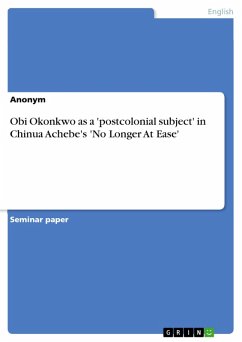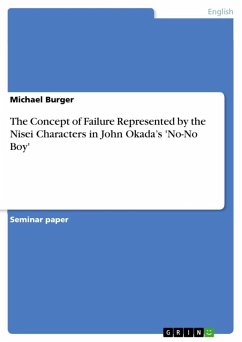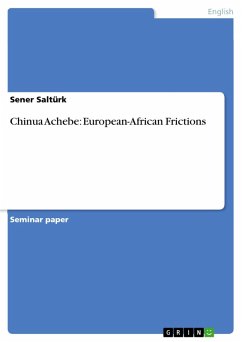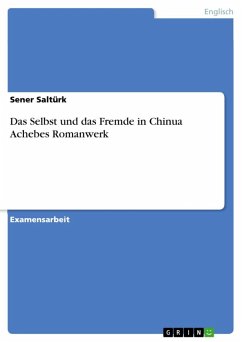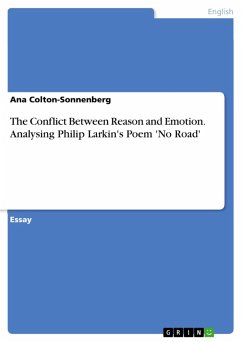Seminar paper from the year 2002 in the subject English Language and Literature Studies - Literature, grade: A (USA = 1), Southern Connecticut State University (English Department), course: The Contemporary African Novel, language: English, abstract: Chinua Achebe's novel No Longer At Ease describes the twilight zone between the British rule of Nigeria and the country's independence. It is a transitional period during which the Whites are leaving the country and the natives are getting responsible for their own lives; colonialism is giving way to a post-colonial situation. Nigerians are now forced to negotiate the claims of both colonial modernity and their previously degraded African mode of life. The period of transition is one in which binary oppositions (colonial vs. African, modernity vs. tradition) seem to be collapsing, unveiling what Mudimbe calls "the strong tension between a modernity that often is an illusion of development, and a tradition that sometimes reflects a poor image of a mythical past" (5). No Longer At Ease was first published in 1960, the year of Nigeria's independence from England. This is significant because it is a novel that pertains to a trend of literature called postcolonial literature that still survives. There are many issues that arise out of post-colonialism, issues that authors and writers around the world have had to deal with. Africa, India, and the West Indies all have come out of the colonial era with a new literature that must address the problems that colonialism left behind. Some of the problems in post-colonial regions concern language, education, the conflict between traditional ways and Western or European ways, the presence of the English, and corruption. Those who later moved into the land of the colonizer (for instance, Obi, while studying in England) experience an entire set of new problems such as nostalgia for home, memory, and the desire for the homeland. When Obi returns from his studies in England, he is an honest idealistic young man. He takes a high paying job in the civil service but soon finds that his salary is not sufficient to meet the financial demands made upon him. He also gets involved with a woman his parents and the clan despise. In the end he is caught taking bribes and is sent to prison. [...]
Dieser Download kann aus rechtlichen Gründen nur mit Rechnungsadresse in A, B, BG, CY, CZ, D, DK, EW, E, FIN, F, GR, HR, H, IRL, I, LT, L, LR, M, NL, PL, P, R, S, SLO, SK ausgeliefert werden.

